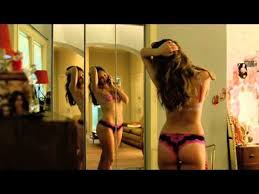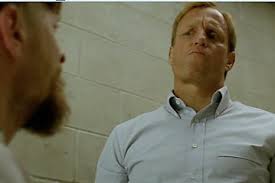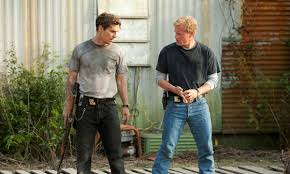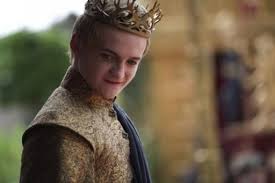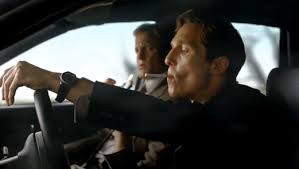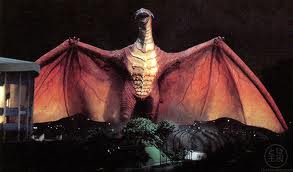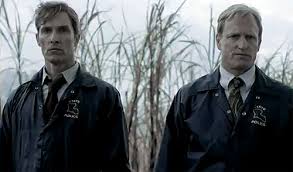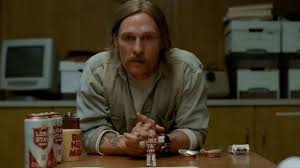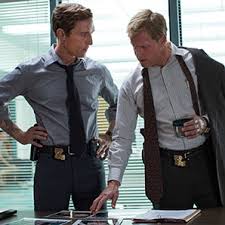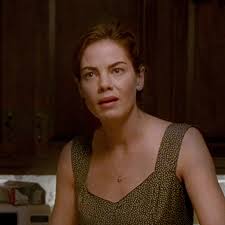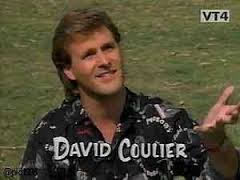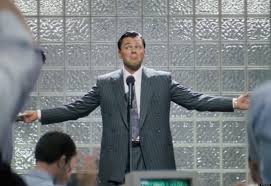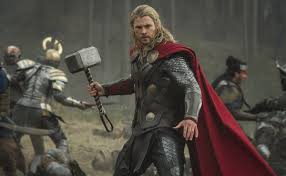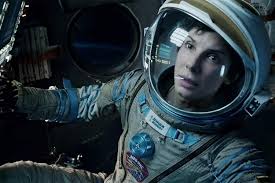Standard Disclaimer that I did not see all the movies I should’ve to make such a list. In particular I wish I had made it to
Rush,
Frances Ha,
The Act Of Killing,
All Is Lost and
Dallas Buyer’s Club, but I have a day job and all.
The ordering of these things is always fairly arbitrary (particularly
in the case of my no. 10 pick, which could have just as easily been 4
or 1 for that matter), but I’m not going to do any of the little cheats
and load the thing up with ties and honorable mentions or ballooning it
out to 15 or 20. It’s a Top 10 list, so here are 10 movies in list
form.
10. 12 Years A Slave
The placement of this movie is entirely arbitrary. I can’t compare 12 Years directly to other movies with their 3 Act structure and traditional character arcs, as it is not a conventional dramatic story. It is an endurance test, seeking to illuminate how terrible humanity’s ability to endure can be. I
could say that it’s well acted (particularly by Chiwetel Eijiofor and
Lupita Nyong’o), and that the cinematography was accomplished, or praise
it in other technical ways. But I can’t say that I liked it, even the way I like other downbeat movies.
I shuffled home from the theater
with my head hanging low, contemplating man’s inhumanity to man and my
own capacity for tolerating atrocity. Which probably means that Steve McQueen accomplished exactly what he set out to. Whether it is a “good movie” or not, this is a towering piece of work, scarring in both a visceral and emotional sense. Everyone
should probably see it, even though I have trouble recommending it
wholeheartedly, because it is definitely going to hurt.
See It For: Putting a finer point on your white guilt
Trendspotting:
Rich White People Get Away With Everything, “True Story”, Period Piece
9. IRON MAN 3
Marvel
films get flack for being product, churned out by a rigid studio system
that drowns out the voice of any particular filmmaker. But
Shane Black’s voice is so sympatico with RDJ’s depiction of Tony Stark
as a self-obssessed, fast-talking playboy with a heart of gold (well, at
least gold trim) that Iron Man 3 comes out as
distinctly a Black film, with all the dock shootouts, witty banter,
circuitous villain plans, and arbitrary Christmas settings that entails.
I really should be sick of RDJ’s schtick by now, since it hasn’t
changed much since the 2006 original, and he’s even spread it to another
franchise with the middling
Sherlock Holmeses.
But
Black brings out the best in that schtick, to the point when even an
extended interlude with a pint-sized sidekick can’t stop IM3 from being
an utter blast.
It’s funny
enough to be a straight up comedy, with time for action beats for the
previously-underused Don Cheadle and Gwyneth Paltrow, and possibly the
best Marvel villain turn this side of Tom Hiddleston’s Loki by Ben
Kingsley.
See It For:
The marvelous “barrel of monkeys” sequence.
Trendspotting:
Marvel Bitchslapping Diminishing Returns, Near Future Sci-fi
8. THE WOLF OF WALL STREET
Wolf is a tremendously energetic, angry film to be coming from a septuagenarian. But
surprise, surprise, Martin Scorcese is better than the rest of us, and
his collaboration with Leo Dicaprio seems to be keeping him engaged and
young in spirit. Wolf
has issues; it is a scathing comedic satire with the bloated runtime of a
historical epic, it doesn’t even use that time to get very deep into
what makes its primary character tick beyond being a, well, everything
addict, and seems to think that the audience will be bored by the
details of Jordan’s Belfort’s biggest crimes (when we eat that type of
confidence scheme stuff up).
But it has even more considerable strengths, in its performances,
editing, and the fact that it’s a scathing comedic satire that is
really, really funny.
Dicaprio
is having the time of his life playing the least inhibited douchebag who
ever lived, and reveals a facility for physical comedy that I never
would’ve guessed at.
A 3 hour runtime may not have been truly necessary to tell this story, but with Marty and Leo at the helm, that time flies by.
See It For: The best Popeye reference that was or ever shall be
Trendspotting: Rich White People Get Away With Everything, “True Story”, Period Piece
.
7. INSIDE LLEWYN DAVIS
The
Coen Brothers don’t know how to make a bad movie (I remain our message
board’s most frequent defender of the maligned screwball Intolerable Cruelty). Inside Llewyn Davis is not their best, or particularly eventful if I were to describe the plot. But it is a sad, funny (OUTER….SPAAAAACE), profound meditation on loss, doubt, and the pains of falling just short of greatness.
Llewyn Davis
is recognizably Coen in nature – prickly, hard luck protagonist,
underplayed humor, blustery supporting turn from John Goodman,
conclusion involving retribution of questionably divine origin. But it’s also less talky, and less overtly comedic than most of their non-crime thriller output. It’s practically a musical, chock full of musical performances, but the last time they toed that line the bros produced O Brother, Where Art Thou?, which remains one of the best films of this millennium. This
one isn’t quite as great as all that, but it’s still one of the best
films of the year, sporting a bonafide star turn from Oscar Isaacs. Also there’s cats, and a wonderful song about space.
See It For: The amazing soundtrack performed by the actual stars and co-produced by the legendary T. Bone Burnett
Trendspotting: Period Piece
6. CAPTAIN PHILLIPS
Paul
Greengrass has carved out a very particular niche for himself, as the
purveyor films that have a way of making even well-executed,
adult-oriented thrillers look like “movies” – lightweight, phony, and
manipulative. But the truth is
that Greengrass himself is a master manipulator, walking audiences
through complex scenarios and forcing them to sweat and cry and feel
empathy for parties that they would much rather write off as
one-dimensional villains.
Captain Phillips is built around two towering performances. It’s no surprise that Tom Hanks is fantastic in the titular role – “fantastic” is practically his blood type. But newcomer Barkad Abdi is a revelation as the leader of the desperadoes that take Phillips and his ship hostage. The
two men create a shaky, unexpected but real bond as the situation
spirals further and further out of control, until the last-act arrival
of the SEALS feels less like a fist-pumping cavalry charge than an
implacable Hand Of God that you wish the “bad guys” could be spared
from. See it, but maybe double your dosage of heart medicine beforehand.
See It For: The airless final 15 minutes.
Trendspotting: Limited Cast, “True Story”
.
5. THOR: THE DARK WORLD
There were plenty more important, more emotional, more “artistic” movies that came out this year, but Thor: The Dark World was easily the best time I had at the movies. A
lifelong Marvel partisan, I never cared for Thor growing up, finding
him too silly and outright dumb (in both concept and personality) to fit
in even with the colorful ranks of the Avengers. But
Chris Hemsworth’s insanely charismatic performance made a convert of
me, finding just the right notes of sincerity and humor to make the
Odinson come alive as a simple man rather than a simpleton. The
rest of the cast, talented thespians all, take their cues from him and
find a way to have an absolute ball with the goofy material without
winking at the camera.
Thor 2 is a big, friendly golden retriever of a movie that slobbers all over you in its eagerness to please. You liked Loki, right? Sure you did, and we’ll bend over backwards to give him an important supporting role! Want to see Stringer Bell stab a spaceship to death? Done! Here’s some Kat Dennings comedy to go with it! More Warriors Three? Okay! And Space Elves with Implosion grenades! The action finale borders on incoherent in how hard it tries to make sure you never get bored (Wait! We also have an Ice Monster!). And I never did. I just sat there with a big dumb grin on my face for 2 straight hours.
See It For: Loki. Duh.
Trendspotting: Marvel bitch-slapping diminishing returns
4. BEFORE MIDNIGHT
We
live in the age where everything is or is at least hoping to become a
trilogy, but Richard Linklater (/Ethan Hawke/Julie Delpy)’s Before series is unlike any of the fantasy or young adult “epics” that have been polluting the multiplexes for several years. It’s more akin to Michael Apted’s Seven Up
documentary series, providing periodic portraits of a grand, touching,
intelligent romance between young, not-so-young and middle-aged partners
who love, above all else, to talk to each other.
Hawke and Delpy’s performances are so lived-in, so natural, that the effect of Before Midnight is like watching your best friends fight. Only good. They
have all the affection, resentment, intimacy and ennui of a real
marriage, and Linklater has the honesty to delve into the way that you
can’t really, truly loathe someone unless you really, truly love them
too. This is the apex of one of
the greatest, realest romances ever put to film, and manages to
maintain the series streak of ambiguous endings while putting a
different, less optimistic spin on it.
See It For: Hawke and Delpy’s incredibly real, volatile chemistry
Trendspotting: Limited Cast
3. Spring Breakers
I
never liked Harmony Korine, finding his films to be grossly unpleasant,
self-indulgent messes to be endured rather than enjoyed. And none of them were as indulgent as Spring Breakers, a bizarre, ungodly mutant of a film, unlike anything I saw this year, or ever really. Part
crime movie, part hedonist romp, part dreamy fable, part oddball
romance, part cantankerous screed about what’s wrong with “kids today”. Wholly original and completely unpredictable. It plays like someone, for some reason, decided to let the scumbag founder of Girls Gone Wild
write a self-aggrandizing screenplay mythologizing his smut as the
ultimate expression of the American Dream, then for some reason turned
around and hired Michael Mann to shoot it, then for some other reason
gave Terrence Malick final cut.
And then there’s Alien. James
Franco has been dancing around the line of self-parody for awhile now,
but this is one of the strangest, most compelling characters and
performances of the young century. And
it’s the center of an insane, beautiful work of something that feels
too grubby to call genius, but too singular to call anything else.
See It For: James Franco(‘s sheeyit)
Trendspotting: Rich White People Get Away With Everything
2. GRAVITY
Gravity
is a truly phenomenal movie experience, one of the few times where
shelling out extra $ for Imax and 3D were not just worth it, but
absolutely essential. The best
roller coaster I’ve ever been on (it took an hour for my stomach to
fully settle afterward), and just about the best theater experience I’ve
ever had. Clooney and Bullock are cast precisely, perfectly to type. A barebones script with exactly what we need and nothing we don’t. A
effects thrill ride without a nuclear bomb or alien portal in sight,
that scrambles your innards and gets you out in a tight 90 minutes, they
don’t make them like this anymore, but then they never really did
anyway. A visceral experience
unlike any I’ve ever had, Gravity makes the case for the continuing
viability of the big screen in a world where bigger and bigger spectacle
is increasingly ported to smaller and smaller TVs, tablets,
wristwatches, etc.
See It For: The best representation of the disorienting axis-lessness of space ever brought to the screen
Trendspotting: Near Future Sci-fi, Limited cast
1. HER

Spike Jonze is one of America’s underappreciated geniuses, possibly because his early triumphs (Being John Malkovich, Adaptation) are rare cases where the director is overshadowed by the writer in auteur terms, and/or maybe due to his association with the Jackass crew. But Her should change that. An
incredible piece of low key scifi world-building, the film also boasts a
small but insanely talented cast. Joaquin Phoenix’s quietly wounded
lead performance, Amy Adams topping off a simply extraordinary year with
a remarkably warm and genuine performance (including doing her feisty
best to save Man Of Steel from iteslf and a glammed up, scorching turn
in American Hustle that is
180 degrees from her mousy, affectionate work here), and absolutely
wonderful voice work from Scarlett Johansson. It’s beggars belief to
learn that she was brought in as a replacement in post-production and
never actually interacted with Phoenix, but she makes an operating
system into not just a fully believable, dimensional character, but one
charming enough to anchor a movie romance without a face.
What is most surprising and
wonderful about the movie is how conventionally that romance plays out,
despite the inherent ridiculousness of the “Guy Falls In Love With His
Phone” conceit. I went in with a vague worry that the movie would turn out to be a simplistic “we all need to unplug and really talk to each other” parable. What I loved about Her is that while it does aver the paramount importance human connection, it does so while celebrating technology as creating new ways for people to connect rather than an impediment. The film is funny, but it never treats the central relationship as a joke. Samantha,
despite originating as lines of code, is a fully intelligent being with
a personality that is much, much realer and deeper than “Siri with a
sexy voice.” What Jonze seems
to intuitively understand is that for as glued to our screens as we can
be these days, the most popular and important apps and sites (be it
Twitter, Okcupid, or CHUD.com) are built around allowing us greater interaction and access to each other. Looking
around today’s world, it occurs that the bulk of our collective
technological will seems to be aimed less at eliminating poverty or
disease than loneliness. Jonze finds that completely understandable, and even kind of beautiful.
See It For: Scarlett Johansson. As
absurd as the premise of this movie sounds, I dare you not to fall a
little in love with her disembodied voice along with Joaquin.
Trendspotting: Near Future Sci-fi, Limited Cast
